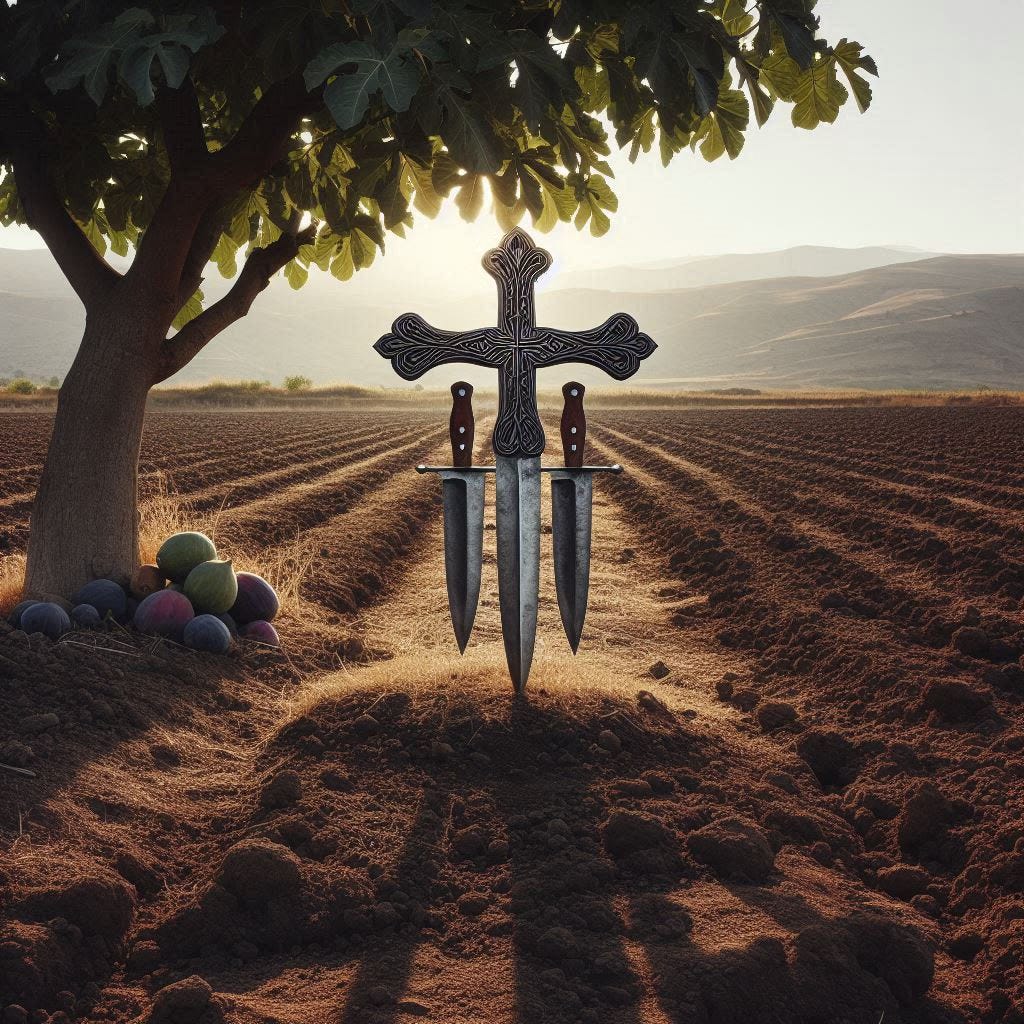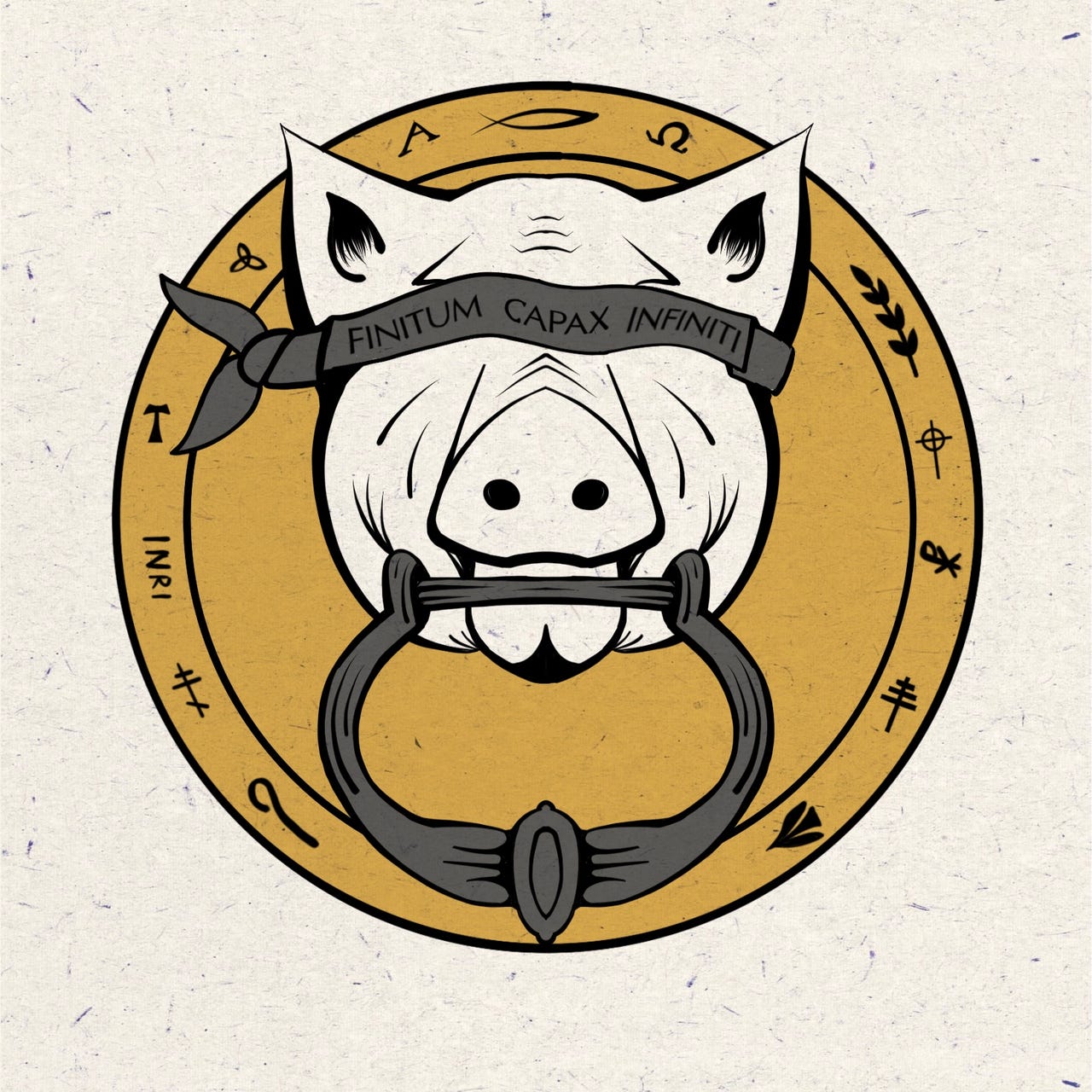It's To Die For
A Reflection on the Feast of St. Bartholomew
For one year and a day, I worked in commercial real estate—property management of professional and retail buildings, with a smattering of apartments thrown in. I performed inspections, planned with contractors, pacified tenants, and tried to keep properties making money for the people who had their names on the deed. It was a busy year, in which I learned a lot, trained in things completely outside my field of study, and I did some decent work, and worked with some really great people. It’s an industry where it’s really obvious who works hard, and who coasts, so the folks who make a life out of it can often have an impressive work ethic. It was a demanding opportunity I had been given, working in property management in the Pittsburgh area.
But it was also an opportunity weirdly tied up in my name. In the 21st century, it’s a rare thing to be inescapably associated with a parent professionally. Gone are the days when parents simply add “& Sons” or something to their family business. And the company I worked for wasn’t that kind of family business, anyway. But I found myself working in the same company, and the same department, as my dad. This made for some confusion because, well, we have the same name (there can never be enough “Dave’s” in one place, after all). We sorted it out, a few different ways, and the solutions that worked for people largely varied based on how long they knew my dad. And it carried a bit of influence, too. Even if they (hilariously) forgot my name, they still remembered I was Dave Ketter’s son.
One of the Twelve apostles has gone down in memory in much the same way. St. Bartholomew, whose feast is today, has carried his father’s name through Church history and it is held in remembrance. Bartholomew, transliterating the Aramaic Bar Tolmai, “Son of Talmai” is the name of an apostle with very few action narratives attached to him in Scripture. The Son of Talmai appears only in the lists of the apostles given in Matthew, Mark, Luke, and Acts. Consistently, he is mentioned in close proximity to Philip (Matt. 10, Mark 3, Luke 6), Matthew (Mark 3, Luke 6, Acts 1), and Thomas (Matt. 10, Acts 1). It’s the name we remember, but his deeds—apart from the confirmation that he was there—are unknown.
Church tradition has identified Bartholomew with Nathanael of Cana. The association with Philip is understood to support this, so when Jesus encounters Nathanael in John 1:43-50, after Philip calls him, we meet someone who stands as a quiet contrast to the rough-and-tumble sons of Jona and Zebedee. Seated under the fig tree, he becomes the prophetic portrait of God’s promises fulfilled, to draw everyone into the kingdom. In the words of Bishop Green, “We are all Nathanael.”1
That name is easier, more attractive. “Given by God” is laden with significance and regard. “Son of Talmai” struggles to turn heads. Who is Talmai to us, anyway? Two appear in Scripture—one a Canaanite king, who is father-in-law to King David, and the other a giant among the Canaanites that opposed Israel. Not much inspiration or positive association to be found there. Scholars cannot agree on the meaning, although one interesting argument is that it is an ethnonym that should be understood to mean “Plowman.” If that’s right, Nathanael comes from people whose literal living is sowing into what is unseen and waiting for the fruit, trusting in the provision of God to bring life out of the dust for them.
Nathanael Bartholomew, a true Israelite, in whom there is no deceit, anticipating the fulfillment of God’s promises, stands in for all of us, waiting for redemption. The news arrives secondhand, but the fulfillment is up-close and personal. He sits under the fig tree, and has literally positioned himself to receive the benefits of the Messianic kingdom prophesied by Micah,
Everyone will sit under their own vine
and under their own fig tree,
and no one will make them afraid,
for the Lord Almighty has spoken.2
It’s inspiring, but more than that, if I may dare to label it, it is hope. One might question why—why could Bartholomew hope at all? He lived in Galilee, where it was quite evident to Jewish people that the whole problem of the oppressive Roman government, the influential temptations of the Greek gymnasiums, and the sectarian controversies of various degrees of Jewish faith, worship, and culture, was in-your-face. Somehow, in the midst of all the chaos, Bartholomew chooses to hope for the Kingdom. The Apostle Paul, some decades later, writes a fair description of this phenomenon: “For in this hope we were saved. But hope that is seen is no hope at all. Who hopes for what they already have? But if we hope for what we do not yet have, we wait for it patiently.”3
Jesus catches Bartholomew in the act of hope, and makes true for him the rest of Micah’s prophecy: “we will walk in the name of the Lord our God for ever and ever.”4 Bartholomew walks with Israel’s Messiah from that point on, sharing in the apostolic ministry of the Twelve, learning the fulfillment of the Law and the Prophets, bearing witness to the work of Jesus in death, resurrection, and ascension. He walks in the name of the Lord all the way to the Upper Room on the day of Pentecost, and is empowered with his friends for ministry that would take him to the ends of the earth.
First among the Jews, and later throughout the lands east of Judea, Bartholomew walks furrows, planting seeds of the Gospel for the Kingdom of God. He goes where there is nothing but dust, and lives into promises unseen, waiting for God to give the life he’s waiting for. In many ways, that year working property management was that for my own life and vocation. It was a waiting time. It was a time of prayer, of writing, of hoping. Carrying my dad’s name for that year made clear—certainly for me, if not to prospective employers—that the fruitlessness was not my own, and it wasn’t up to me. God gives the growth, and in my case, it wasn’t time, but it was coming.
I went from seeing only the dust in my efforts to a new chapter that opened with five baptisms. God weaved the journey together as the candidates were baptized according to an Anglican rite within the baptismal of the Pentecostal church that had raised me up and sent me out. My personal life took a similar turn, as the Anglican marriage service was celebrated in the Pentecostal church, uniting me and my wife in the presence of God and our families. These legacied moments speak of deep furrows from a life of stability, as well as the way that the sending God, the God who sent Christ in the flesh, and who sends us out with his mark and Spirit to lay seed in yet another field. I had deep roots in Pittsburgh, and yet the Lord called me to Virginia. The fields I worked, I sowed long and abundantly in. But the Lord who gives the growth said “Not you, not yet.”
So, I went walking and stayed for some time in the waiting—watching, praying, hoping. I have had to learn again what the posture of hope looks like now, and like Bartholomew, I have found that it means living out the future: I am a priest of God’s Church, announcing God’s absurd love for us through Jesus in the power of the Holy Spirit, empowered to baptize, to bring the gifts of Christ’s Body and Blood to the people of God, to anoint and lay hands for healing, to teach, to discern, and release people into the callings they have had from the moment they were born. The future is very much present.
Tradition tells us that Bartholomew took the Gospel to the Bombay region of India, and then to "Greater Armenia,” where modern-day Azerbaijan is located. The Armenian Apostolic Church honors him as one of their founding apostles. After many years of faithful ministry, he was martyred for his witness to the Good that came from Nazareth.5 He would not live to see the fruit of that mission, and he had left the others well behind, so for what did he wait for? What hope could he have? The same hope that allowed him to sit under the fig tree all the years before, when God’s Yes came strolling into his life.
Bishop Chris E.W. Green makes this point in an aside in the third episode of the Advent 2023 series on his Speakeasy Theology podcast. I thoroughly recommend subscribing to +Chris’s substack here:
Micah 4:4 NIV.
Romans 8:24-25 NIV.
Micah 4:5 NIV.
Traditions differ, suggesting either crucifixion or flaying and beheading.




